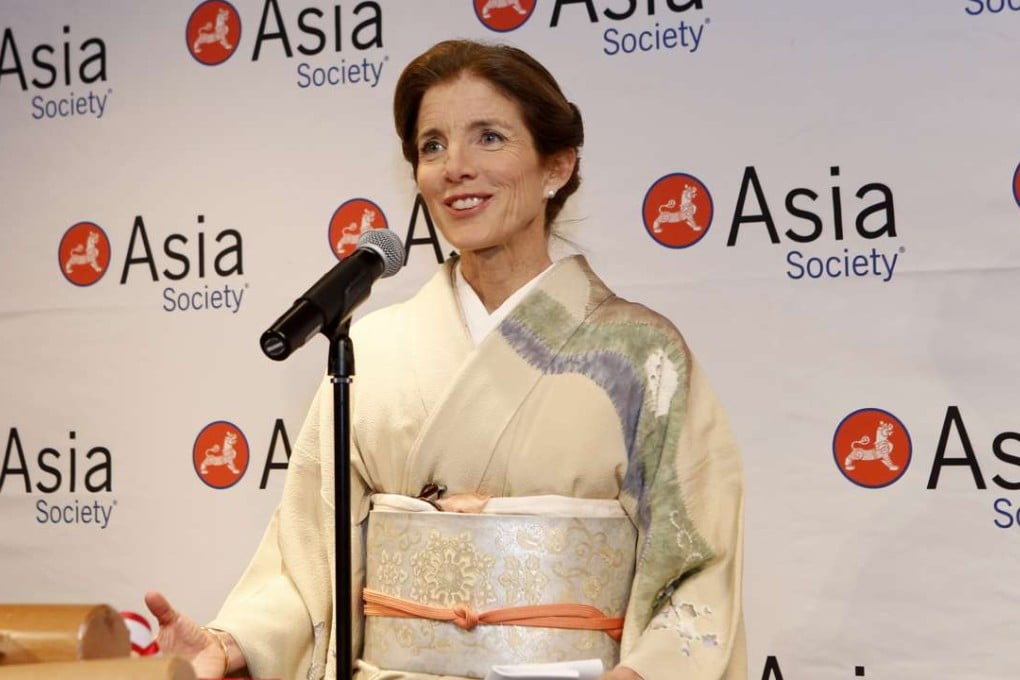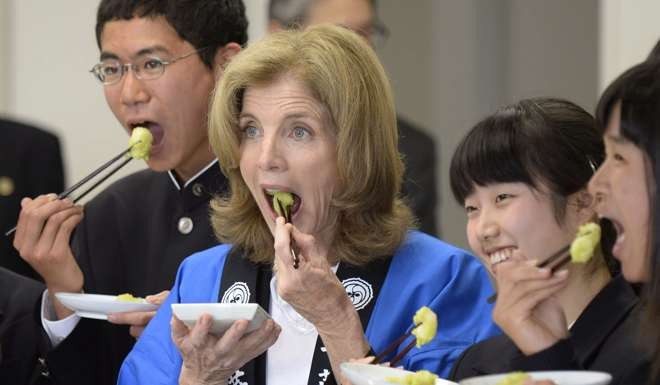Outgoing ambassador Caroline Kennedy boosted US-Japan ties
Kennedy ruffled some feathers early in her tenure, but during her time, the conservative Abe and liberal Obama found common ground

Caroline Kennedy stepped down on Wednesday after three years as US ambassador to Japan, where she was welcomed like a celebrity and worked to deepen the US-Japan relationship despite regular flare-ups over American military bases on the southern island of Okinawa.
Appointed by President Barack Obama in 2013, she had been expected to leave with the coming change in US leadership. President-elect Donald Trump’s transition team has also said that all envoys who were political appointees must step down by Inauguration Day on Friday. Trump has not named a new ambassador yet.
She was true to the Obama administration goals, and she maintained the Kennedy mystique without making it the focal point of her tenure
Kennedy ruffled some feathers early in her tenure by tweeting her opposition to Japan’s dolphin hunt, shortly after her embassy issued a statement expressing “disappointment” that Japan’s Prime Minister Shinzo Abe had visited a shrine that memorialises second world war criminals, among others.
During her time, though, the conservative Abe and liberal Obama found common ground despite coming from opposite ends of the political spectrum.
“She has great skills and authority as a convener, a much needed function in US-Japan relations,” said Kent Calder, the director of the Reischauer Center for East Asian Studies at Johns Hopkins School of Advanced International Studies in Washington. “She has been more of a network builder than a concrete policy initiator, but that is almost an inevitable role for ambassadors these days.”

He said her legacy includes facilitating Obama’s historic visit to Hiroshima last May, one of two Japanese cities devastated by US atomic bombs in 1945. Kennedy was in Pearl Harbour at the end of last year when Abe reciprocated with a visit to the site of Japan’s 1941 surprise attack that drew America into the second world war.
